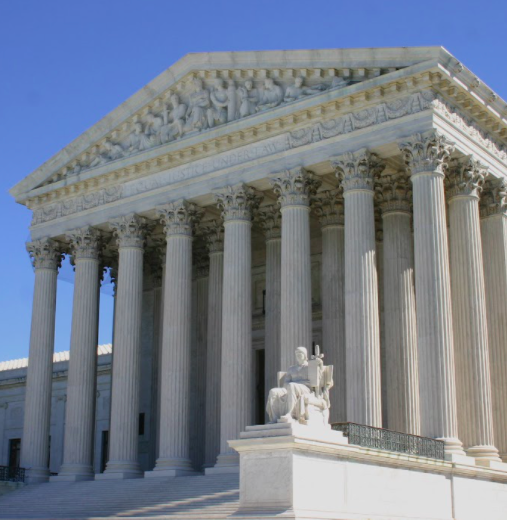Biden’s Supreme Court Nomination

Photo by Courtesy of Creative Commons
March 9, 2022
After over 27 years on the Supreme Court, Justice Stephen Breyer will be retiring. He was appointed in 1994 by President Clinton and confirmed with 87 votes in the Senate. Earlier in his career, he was a professor at Harvard Law and worked with the prosecution team during the Watergate scandal. He was known for being a pragmatic leader who was always open to listening to the other side.
On the campaign trail, Joe Biden promised to nominate the first black woman to the Supreme Court if presented the opportunity. Many argue that this promise is an act of tokenism, but tokenism is different from representation. Tameka Carter, a Spanish teacher at LFA, defined tokenism as when “they ask them to play a role that is not of their own identity,” and that person conforms to the dictated role. Carter said, “A person can not be a token unless they’ve agreed to it” with their actions and appeasement. The decisions a person makes in a position of power can help evolve a culture towards authentic diversity and inclusivity, rather than reaffirm historical customs. Representation is valuable because “we have to pay attention to the race and gender of our leaders because we have done things to the groups that they belong to, it is part of their identity,” and this perspective is critical. Carter said, “We have to take a reckoning of dealing with what we have done, we are a country that has never paid for our sins.”
The Constitution does not contain any specific requirements for Supreme Court justices, and the president has historically appointed whomever they saw fit. In more recent times, the Senate has rejected 1 in every 3 nominees. In this case, given the close national watch, anyone appointed to the Supreme Court will be “more than qualified to be appointed,” said Aviral Pathak, a government and politics teacher at LFA.
The Supreme Court holds significant power, and the overrepresentation of one group can uphold laws that only serve some Americans. Pathak stated that the “court system has historically been skewed towards systemic racism.” The nomination of a black woman does not inherently solve this issue but it would be a step towards progress. Pathak said the overall “mono-culture of the bench” reveals a need for a revised “range of opinions actually expressed in American society.”
In 2020, Justice Ginsburg, a powerful voice in the fight for equal rights and other progressive causes, passed away and was replaced by Trump-appointed Justice Barrett, a woman of very different political standing. This transition of power put the question of a Justice’s “legacy” into the minds of Americans.
As the Biden administration considers Breyer’s replacement and legacy, while promising the nomination of a black woman, Kentaji Brown Jackson rises to the occasion. Jackson, the current Judge of the US Court of Appeals for the District of Columbia Circuit, is an alumna of Harvard University, like Breyer, and was a clerk of his for two years. As of February 25th, she is President Biden’s official nomination, although her ultimate appointment to the Supreme Court is not yet guaranteed.
In the event that the Senate does not confirm Jackson, other impressive women are ready on deck, like Leondra Kruger and Michelle Childs. Kruger is a California Supreme Court justice and earned her Juris Doctor degree from Yale University, where she was also the Editor-in-Chief of the Yale Law Journal. Childs, a district judge in South Carolina, stands out as she earned her degrees from the University of South Carolina, which would further diversify the courts because she is not an Ivy Leaguer.
As the Senate prepares to hold the Judiciary Committee, likely in April, the American people await a new voice to be heard.





































